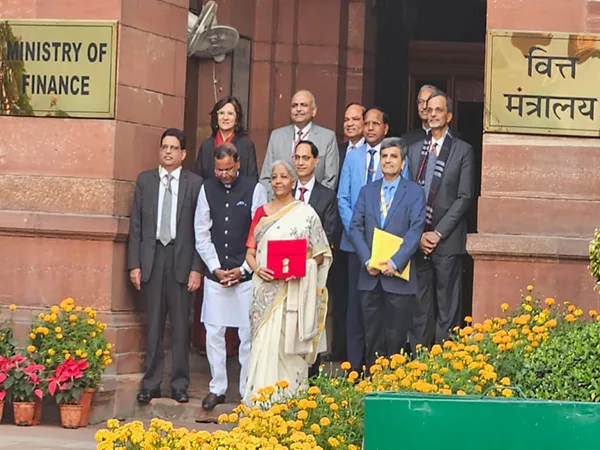NEW DELHI, Feb 1: The Union Cabinet, chaired by Prime Minister Narendra Modi, has approved the Union Budget for the fiscal year 2025-26, ahead of its presentation by Finance Minister Nirmala Sitharaman in Parliament. The approval came during a crucial Cabinet meeting on Saturday, with senior Union Ministers including Amit Shah, Rajnath Singh, Gajendra Singh Shekhawat, and Pralhad Joshi arriving at the Parliament beforehand.
Minister Shekhawat emphasized the budget’s importance, stating, “The budget will ensure continuity and prioritize the welfare of the country and its poor. It will be a novel and strong step toward achieving the vision of ‘Viksit Bharat’.” Parliamentary Affairs Minister Kiren Rijiju expressed confidence in India’s economy, noting its steady growth despite global challenges. “This will be Nirmala Sitharaman’s record eighth budget presentation, and I hope it creates a positive environment,” he added.
Before the Cabinet meeting, Finance Minister Sitharaman visited President Droupadi Murmu to seek formal approval for the budget, marking the occasion with the traditional ‘dahi-cheeni’ (curd and sugar) offering for good luck.
Union Minister Pralhad Joshi praised the Modi government’s people-centric approach to budgeting, noting, “Ever since the economy has been under PM Modi’s leadership, we’ve consistently given pro-people, pro-poor, and pro-middle-class budgets. This time will be no different.”
In anticipation of the budget, the Economic Survey presented in Parliament on January 31 projected India’s GDP growth between 6.3 per cent and 6.8 per cent for FY 2025-26. It focused on industrial growth through investments in research and development, MSMEs, and capital goods to foster innovation and enhance global competitiveness. The Survey also highlighted strong economic fundamentals, such as a stable external account and growing private consumption.
The Economic Survey further indicated that food inflation is expected to ease due to the Kharif harvest and strong Rabi production, though risks from adverse weather and rising international prices remain. India’s foreign exchange reserves stood at USD 634.6 billion as of January 3, 2025, covering 90 per cent of external debt and offering over ten months of import cover.
Notably, formal employment also saw growth, with EPFO subscriptions more than doubling from 61 lakh in FY 2019 to 131 lakh in FY 2024, signaling a healthier employment landscape.
The budget session of Parliament officially commenced on January 31 with President Murmu’s joint address. The first part of the session will continue until February 13, and the second part will reconvene on March 10, concluding on April 4.

